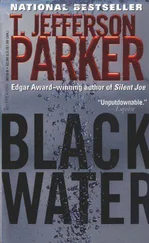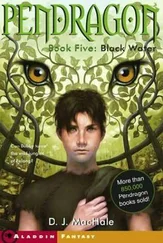‘But Bud, Ma, do you remember Bud?’
His mother stared at him, pursing her lips, frown lines two deep tracks on her brow, tipping her head to one side with a slightly coquettish air, rifling her memories of husbands and ex-husbands and other women’s husbands. . And he knew that the only thing he wanted to do was to run away from her as far and as fast as possible, and to be on the other side of the world when she died.
He walked slowly back down Noorderstraat after his visit to his mother — not because he was reluctant to leave her behind, alone in the mausoleum, but because he was unwilling to arrive back home. Francisca wouldn’t be there until later but once he got back, there was a small job he had promised he would do while she was out: fix the top drawer of the chest of drawers. It was sticking: it annoyed her every morning. ‘When will you fix this thing?’
The summer air was still light, not too hot, the sky still pale and fresh. It occurred to him that the most enjoyable part of this Sunday would be the walk from one obligation to another — that neither his mother’s large dark house or his wife’s small bright one held any sense of comfort for him, that the place he felt most at home was in the transition between the two.
His boss had been asking him for some time how he would feel about returning to Indonesia, given his background knowledge of the archipelago. They had just widened the currency trading band from eight per cent to twelve per cent: the rupiah was heading down and given what was happening elsewhere in the region, their clients were getting twitchy. He had been prevaricating — he hadn’t discussed the possibility with Francisca — and at one point his boss had said, ‘Is it because of what happened before, in sixty-five?’
‘No,’ he said, with a small smile. ‘That was thirty-two years ago.’
He liked his current boss; Gregor was long gone, Jan was solid and decent, had said to him once, ‘You know, I’m horrified what we exposed young operatives to back then, wouldn’t happen now, not on my watch.’
He had not thought about Jan’s suggestion too much at the time. He was an old man now; he had his commitment to Francisca. The Asia Department was huge in comparison with the sixties and in the intervening three decades the company had gone from a score of operatives plus back-up staff to hundreds of employees in Amsterdam alone — that was before you counted the offices in most capital cities in the world. There were plenty of other people they could send. Now though, as he walked back home, it came to him clear and clean. If he went to Indonesia, he would get away from. . everything.
He did a small inventory of his life. It was 1997 and he was fifty-four years old: fifty-five later that year: a middle-aged man, married with no children, who had had a disrupted childhood and a dramatic youth but had spent the last three decades behind a desk. His mother hardly knew who he was any more. His marriage was not in a good state: he had known it for some time but this was the first occasion he thought it out loud to himself. Interesting, that, how you could know something and yet take so long to acknowledge it in so many words.
As he walked, he also acknowledged to himself that he had known it wasn’t a good idea at the time. He had married for the novelty value: it was one of the few mistakes he hadn’t made yet, after all. And still, they had tried for the baby, and then after the baby had died, they had had their grief to nurse instead, to wean and to raise, until it became old enough for them to have a little more time to themselves. That was four years ago. The grief should be a bit less dependent by now, he thought, play on its own sometimes, sleep through the night. Why was it still giving them broken nights? What were they getting wrong?
As he walked back to the small house he shared with his wife, he thought about Jan’s offer to send him back to Indonesia. Francisca, brave and delicate and throwing herself into caring for his elderly relatives in the absence of a child to care for; their pleasant home, very much to her taste; their occasional dinners with friends, all Francisca’s; his one-sided conversations with his mother. . that was the inventory, that was the sum of it.
After they had lost the baby, his mother had gone through a short period of sobriety and, despite her dislike of Francisca, the two of them had come to some kind of accommodation. It was an accommodation that filled Harper with disgust. His mother’s love of tragedy was well established. When Francisca had been his pretty, happy girlfriend, then wife, Anika couldn’t have been less interested. Then Francisca became a weeping stick with a lost child and all at once his mother couldn’t wait to claim her as her daughter-in-law, to have a piece of all that drama. They even went shopping together a couple of times, met up for hot chocolate, until his mother’s relapse back into drunkenness.
Francisca’s response was, as ever, less cynical. ‘Oh Nicolaas,’ she sighed to him, when he expressed his exasperation at his mother’s sudden interest in their lives, ‘hasn’t it occurred to you, she lost her granddaughter? It was probably her only chance at a grandchild. Of course she has a right to grieve with us.’ His frank opinion was that Francisca was being far too generous.
*
Francisca returned from visiting Aunt Lies at the end of the afternoon and they cooked pasta together in the kitchen, him slicing garlic and tomatoes, her making the salad. They made companionable conversation about the relative states of health of the two old women and Francisca said, ‘You know, for some reason Aunty Lies got on to how your father first came to the house, in Leiden, and how crazy your mother was, how handsome he was, this army officer, it was really sweet. I didn’t know the rest of the family never spoke to her again, because she went back to Indonesia with him. Imagine. Her stepfather gave permission then cut her off without a penny. Crazy, huh? Did you know all that?’
‘Yeah. .’ he murmured, rinsing a tomato beneath the tap and placing it on a wooden chopping board.
‘You’ve never talked about it much, don’t you think that’s a bit… well. .’
He had his back to her. He rolled his eyes, knowing she couldn’t see him do it, and brought the knife down on the tomato, which was pale, unripe. The knife was blunt and the skin resisted the pressure of the blade, then parted. ‘I hope she didn’t tell you he was the love of Anika’s life and she’s never recovered. Anika was saying the same thing about Michael this morning. Michael was the love of her life, apparently. Next week, she’ll be saying it about Jan.’ Jan Aaltink was the barrel-chested farmer Anika had married on her return to the Netherlands in 1952, the second of four stepfathers she offered her son over the decades.
Francisca didn’t reply. She was standing over the salad bowl and turning lettuce over with her fine, pale hands. Harper knew that silence — it was the one that descended when Francisca was deciding how to phrase a criticism in the most non-confrontational manner possible. ‘Why are you so hard on your mother?’ she said eventually. ‘It was a brave thing to do, don’t you think? Marrying a mixed-race officer, in that day and age, going to the other side of the world with him, then a war breaking out, stuck there. Don’t you think you could forgive her for once? Everything she went through?’
He wasn’t in the mood for this. He slammed the knife down on its side on the chopping board, exhaling with a derisive ugh sound, turning.
‘Okay okay!’ Francisca said quickly, lifting her hands.
‘No, no,’ he said. ‘I’ve heard about everything she went through all my life, over and over again, I’ve heard about how awful it was, giving birth to me in the camp, her endless suffering. . Everyone, everywhere, has always let her down. .’ He glared at Francisca. ‘Funny, though, I’ve never once heard her say anything about how it might have been quite hard for me, her behaviour.’
Читать дальше












